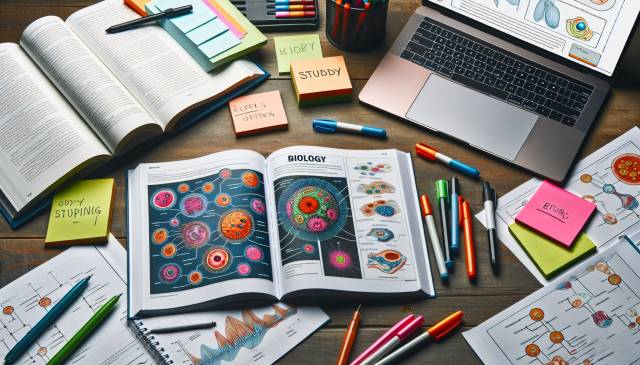
Biology, the scientific study of life, is a subject that fascinates many and serves as a cornerstone for numerous fields, from medicine to environmental science. As we delve into the intricacies of living organisms, we uncover the delicate balance that sustains life on Earth. Whether you're a student looking to enhance your knowledge or an adult interested in lifelong learning, understanding biology can open doors to new opportunities and insights.
The Importance of Biology in Today's World
Biology is not just a subject confined to textbooks; it plays a pivotal role in our everyday lives and the world around us. Here are some reasons why studying biology is essential:
- Health and Medicine: Knowledge of biology is fundamental for careers in healthcare, enabling practitioners to understand diseases, develop treatments, and promote health.
- Environmental Conservation: Understanding biological systems helps us address ecological issues, promoting sustainability and conservation efforts.
- Biotechnology: Biology drives advancements in technology, leading to innovations such as genetically modified organisms (GMOs) and CRISPR gene editing.
- Animal and Plant Sciences: A solid grasp of biology is crucial for anyone interested in agriculture, zoology, or botany.
Key Concepts in Biology
To appreciate the breadth of biology, it helps to understand some key concepts:
1. Cell Theory
Cell theory states that all living organisms are made up of cells, which are the basic units of life. This concept lays the foundation for understanding more complex biological functions.
2. Genetics
Genetics explores how traits are inherited through genes. The study of DNA, RNA, and genetic variation is crucial in fields like medicine, agriculture, and evolution.
3. Evolution
The theory of evolution explains how species change over time through natural selection. This concept is vital for understanding biodiversity and the interconnections among species.
4. Ecology
Ecology examines how organisms interact with their environment and each other. This field is increasingly relevant as we face global environmental challenges.
How to Study Biology Effectively
Studying biology can be both exciting and challenging. Here are some tips to enhance your learning experience:
- Engage with Multimedia: Utilize videos, podcasts, and online courses to supplement your learning. Visual aids can make complex concepts more digestible.
- Participate in Labs: Hands-on experience in a lab setting can deepen your understanding of biological processes and techniques.
- Join Study Groups: Collaborating with peers can offer new perspectives and enhance your comprehension of difficult topics.
- Stay Curious: Biology is an ever-evolving field. Keep up with the latest discoveries and advancements to fuel your passion for learning.
Exploring Online Courses in Biology
With the rise of online education, there are now countless resources available for learners interested in biology. Here are some types of courses you might consider:
- Introduction to Biology: Perfect for beginners, these courses cover the basics of biological principles.
- Genetics and Evolution: Dive deeper into heredity, gene functions, and the mechanisms of evolution.
- Ecology and Environmental Biology: Explore the relationships between organisms and their environments, focusing on conservation efforts.
- Microbiology: Study microorganisms and their impact on health, ecosystems, and biotechnology.
Conclusion
Biology is a dynamic and essential field that impacts our daily lives in profound ways. Whether you're pursuing a career in science or simply have a passion for understanding the living world, there are numerous paths to explore. By engaging with the subject matter through online courses and interactive learning methods, you can cultivate a deeper appreciation for the complexity and beauty of life.

